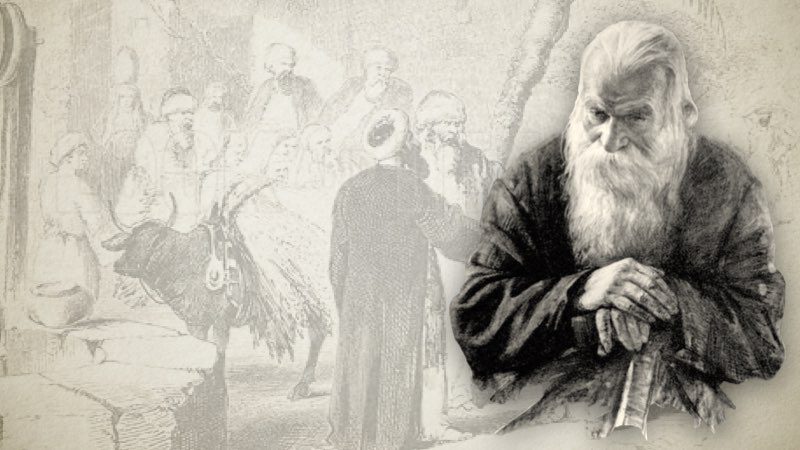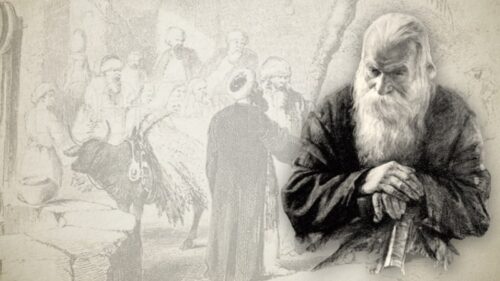-
One of the Highest Insults
About sixteen years ago, I heard a young man from Hoxton (Association Baptist) Academy make the following remarks: “I now offer you Christ, and Christ stands with open arms ready to receive you. Yea, he begs, and prays, and beseeches you all to come unto him and have life; and yet some of you will not come. Nay, it is as if God the Father came and fell upon his knees before you, begging and beseeching you to receive Christ, and come and be reconciled to him; and yet you will not come.” In this way he proceeded for a considerable length of time; and this he called “preaching the gospel to every creature.” From a professed Arminian such remarks might be expected; but for…
-
Preface
The subject of eldership in Baptist circles has been one of the most misunderstood issues of recent years, with the result that it has become fashionable and even considered orthodox for churches to supplement or replace a single pastor with a team of ‘elders’. I contend this mode of governance is unscriptural, impractical and unconventional. This pamphlet is designed to argue the case why Baptist churches should retain their historic practice of appointing one bishop/pastor, assisted by a group of deacons. I have completed a comprehensive textbook on this subject, which is under review for publication. In the interim, this pamphlet is an abridged preview of the larger forthcoming work, and I extend special thanks to Adam Nixon who encouraged the pamphlet’s preparation, and to…
-
An Introduction To Eldership
It is commonplace to hear it staunchly affirmed by preachers that the term elder is one and the same with bishop and pastor; that the term is usually used in the plural, indicating the early churches were overseen by a plurality of elders. Hence, it is argued, if churches today are to reflect the most Scriptural form of governance, then elders must be appointed as overseers. • Some believe there is parity among the elders, wherein all share equal authority as teachers/rulers; whereas others believe there is a difference between the elders, wherein some are set apart with a gift for teaching and others with a gift for ruling. • Some will only use the title Elder to identify the office, whereas others will also…
-
1. Elders Are Unofficial Leaders Never Elected Or Appointed To An Office
The Biblical term ‘elder’ was based upon the traditional cultural understanding of what the word universally meant. For in every culture and community, elders are the patriarchs and matriarchs of local and extended family units. These elders are never elected or appointed to an office—they merely assume this unofficial role of leadership by virtue of age, wisdom and influence. An example of continuity in the practice and use of the term surviving with its meaning intact from earliest times until today is cited with perfect clarity by S. M. Stiegelbauer in her paper on the First Nation Elders, published in The Canadian Journal of Native Studies.[1] With reference to the Inuit people who today still inhabit the Arctic regions which include Canada, researcher Stiegelbauer writes:…
-
2. The Terms Elder, Bishop And Pastor Are Not Interchangeable
When the term elder is used within Christian circles, it conjures up ideas of ecclesiastical clergy, either elected to office by the congregation, or appointed to office by the denomination. In fact, it is only within Christian churches that the term elder is made to mean something other than persons honored in virtue of their age, wisdom and influence. This irregular interpretation is rooted in a flawed hermeneutic of several biblical texts which refer to elders. It is assumed, because a few scripture passages use the term elder when identifying a bishop/pastor, that therefore, most (if not all) references to elders in the early churches must be bishops/pastors. The absurdity of this presupposition is comparable to one who boasts that all disciples must be apostles,…
-
3. Evangelists, Bishops And Deacons Are The Only Permanent Offices Recognized In The New Testament
Ephesians 4:11: “And he gave some, apostles; and some, prophets; and some, evangelists; and some, pastors and teachers;” The apostles and prophets were temporary offices, laying the foundation for both the establishment and edification of Christian churches—apostles were primarily sent to organize new churches; prophets were appointed to nurture existing churches. The evangelists and pastor-teachers are permanent offices carrying out a similar function as the apostles and prophets, respectively— evangelists (missionaries) are appointed to preach the gospel with a design to organize new churches; pastors-teachers are appointed to teach the gospel with a design to manage existing churches. That pastors-teachers are one and the same with bishops is affirmed by the Apostle Peter, who identifies the Lord Jesus Christ by both titles—1 Peter 2:25: “For…





